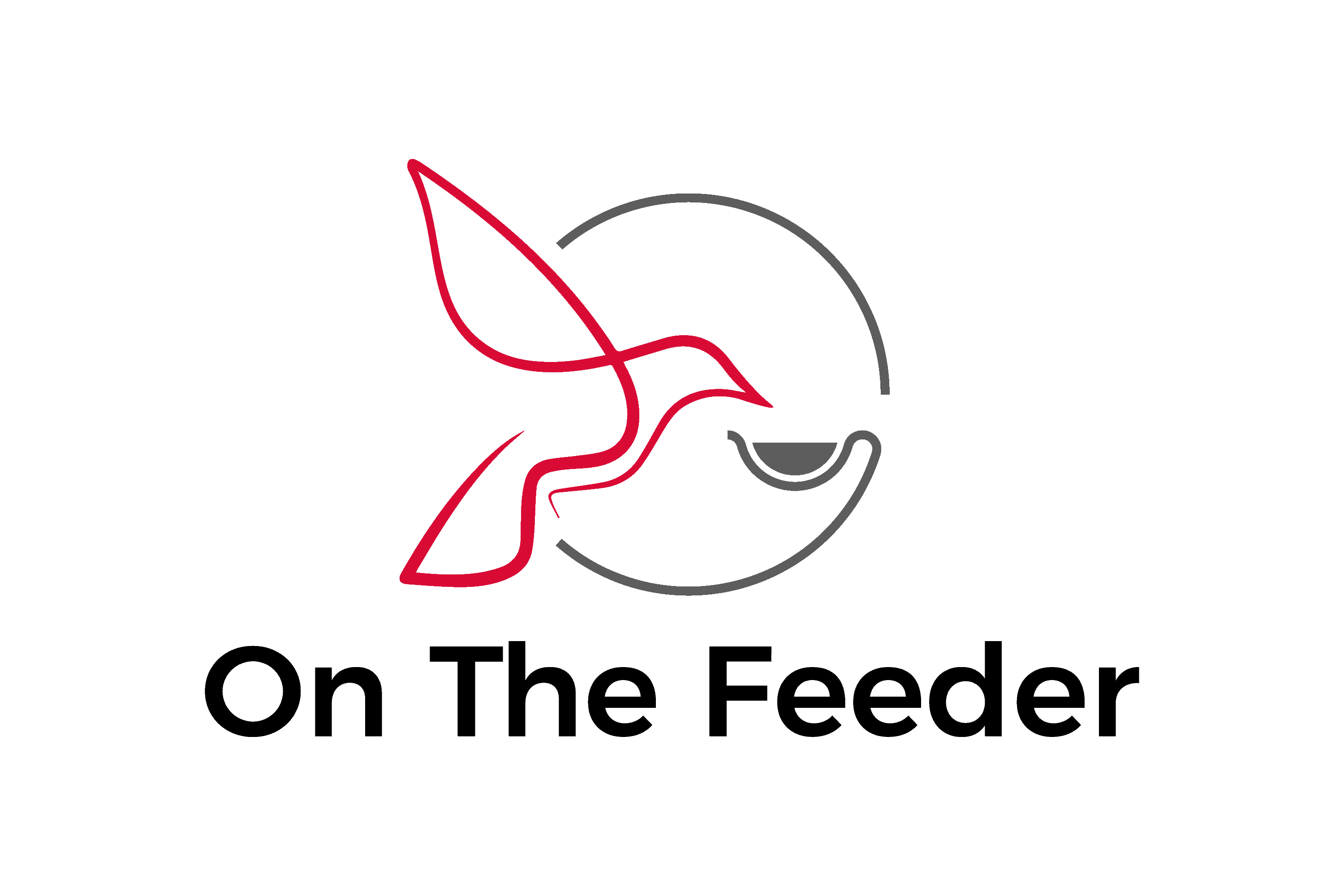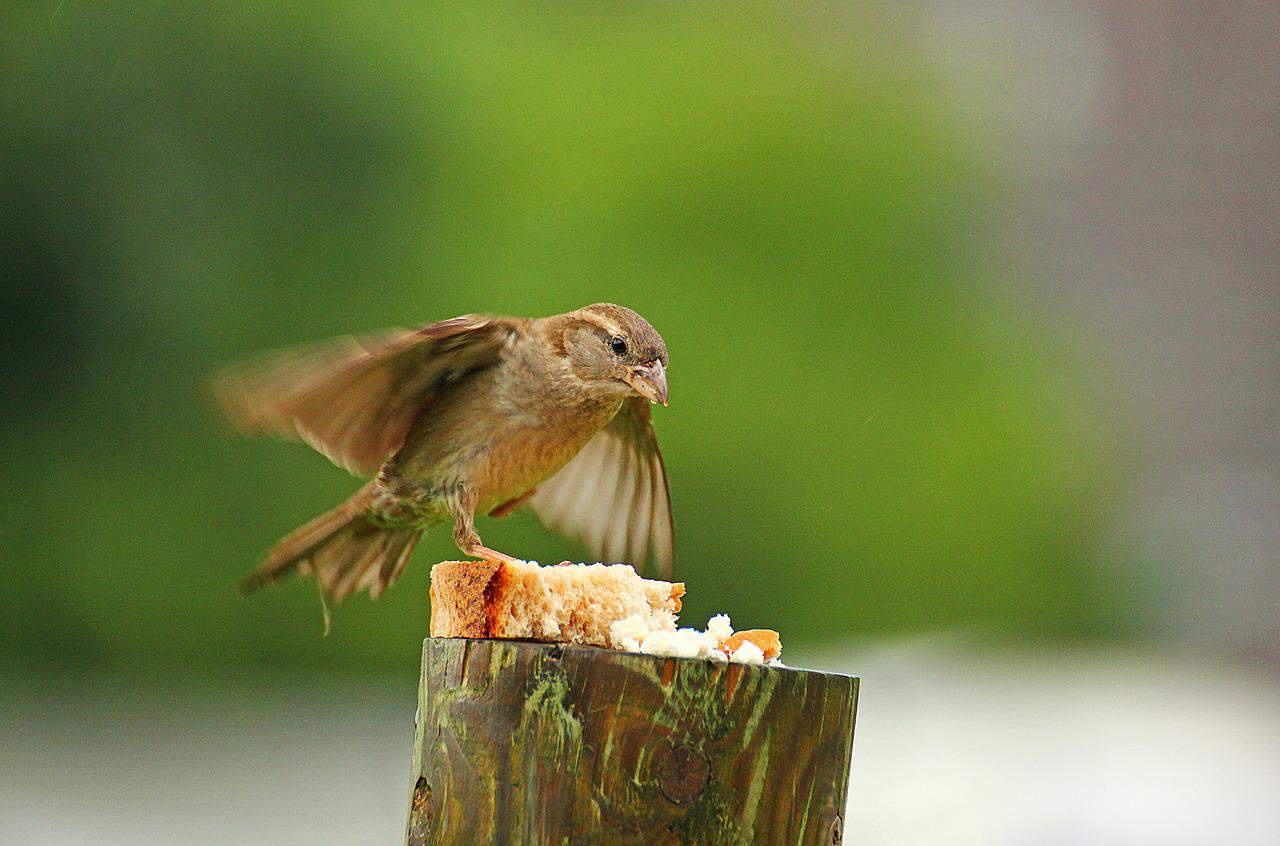Inside: Is it bad to feed bread to birds? The truth is revealed in this article. Spoiler Alert: It’s not a Yes or No answer. Find out when it is and isn’t bad to feed bread to birds.
For more than 25 years I’ve been backyard birding, making sure to be as responsible as I could by feeding my feathered friends the food that will only help – not harm them.
When I was a kid, our family drove to the shores of Lake Michigan with our bag of stale bread and tossed pieces of it on the lawn for the ducks and geese to eat. At the time it seemed like a perfectly normal thing to do. What did I know? I was only 5. Now I know better!
So the question is – is feeding bread to attract birds to your yard the right thing to do? Let’s find the answer to the question, “Is bread bad for birds?”.
Is It Okay to Feed Bread to Birds?
Is bread bad for birds? Why or why not?
The answer is sometimes. The typical sandwich bread found in your kitchen is often heavily processed and contains preservatives to keep it shelf-stable. Unfortunately, those chemicals aren’t suitable for wild birds.
In addition, bread has minimal nutrients that birds need to be healthy because it’s primarily a carbohydrate. This fact pertains to all species of birds.
Although bread is generally not considered a good snack for birds, you have options if this is your snack of choice. Some healthier options for bread-based treats are whole grain and multigrain loaves of bread. This anecdote is doubly true if they’re organic.
What Can I Do To Make Bread Better for Birds to Eat?
Aside from using multigrain or whole-grain slices of bread, if you must feed bread to birds, you can increase its nutritional content by adding toppings to it.
Toppings, including peanut butter or other types of nut butter, such as almond butter, are an excellent way to add fat and proteins to a bird’s diet.
Because nut butter creates a sticky surface area, you can make the bread more enticing by adding bird seeds or mealworms.
Bread Toppings To Avoid Feeding Wild Birds
Due to the way they’re processed or artificial ingredients, you should avoid feeding all birds certain foods. These foods include:
- Processed lunch meats
- Sugar-free spreads, like jelly or marmalade
- Bacon
- Raw meat
- Roasted or seasoned nuts
- Potato chips
- Chocolate
- Anything with added food coloring
You also shouldn’t feed expired foods or old, moldy bread to birds.
Why Is Bread Bad for Birds?
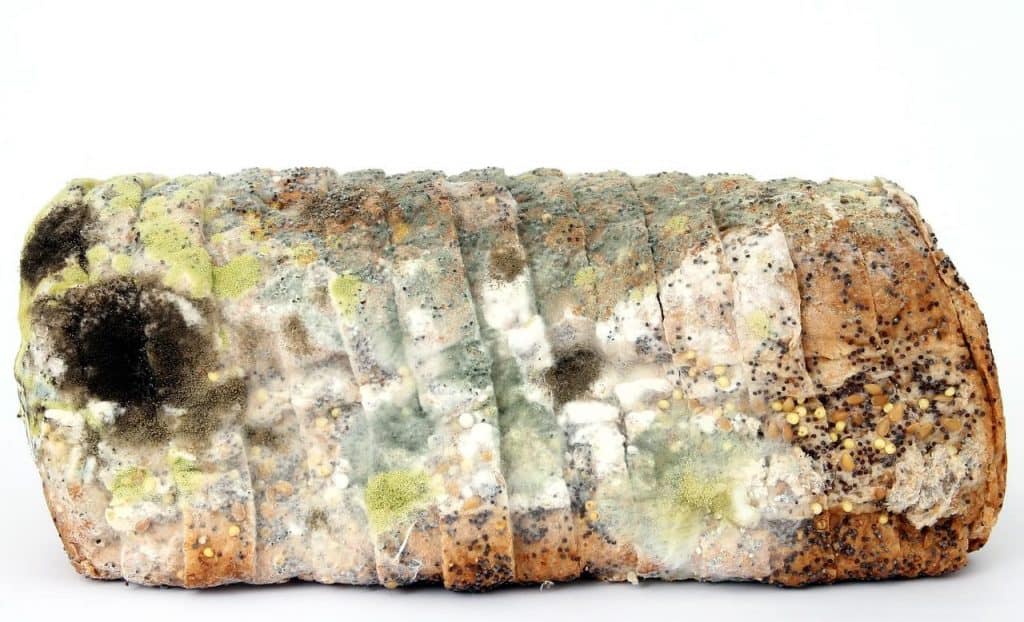
Why is bread bad for birds? Bread can be harmful to all birds because ingesting it can often lead to malnutrition and even obesity.
Additionally, bread is a carbohydrate that alleviates hunger but doesn’t provide much nutrition. Birds need protein to help develop their muscles and feathers.
Sadly, if a bird’s diet is primarily composed of bread, it can eventually lead to death.
Bread Causes Increased Excretion
Bread is effective at spreading disease among wildlife. The reason disease spreads more rapidly when birds ingest bread is that they eat where they excrete waste.
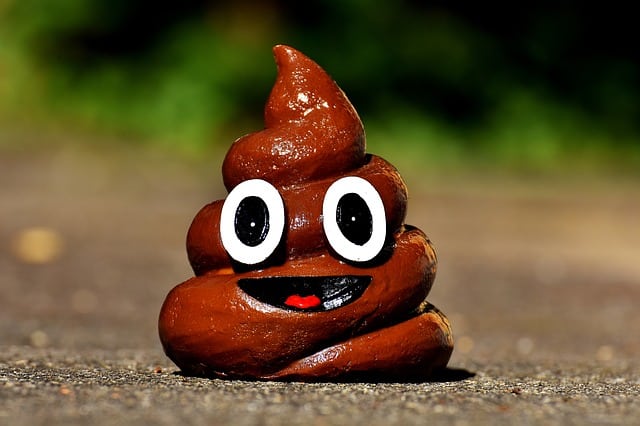
Birds poop more when they eat a lot of bread. This isn’t something they can control due to the way their cloaca functions (the exit point for biological waste).
Unfortunately, bird feces contains a variety of bacteria that can be tainted with disease. Because birds can fly, there is a vast area where their droppings can fall.
Mold Can Cause Infections
Any uneaten bread left behind will become moldy which attracts pests, like rodents, who are known to spread disease.
Aside from rodents, other animals could eat the moldy bread and become unwell, and experience disease.
It Detrimentally Affects Baby Birds
Baby birds will suffer malnutrition due to the lack of nutrients in bread. They rely on good foods to help their growth. Healthy foods scavenged naturally in the wild will give them the energy to develop.
If they become reliant on eating bread, they won’t learn to scavenge independently, lowering their chance of survival.
Dry chunks of bread also pose a choking hazard to chicks and fledglings.
The Difference Between Feeding Wild Birds and Ducks
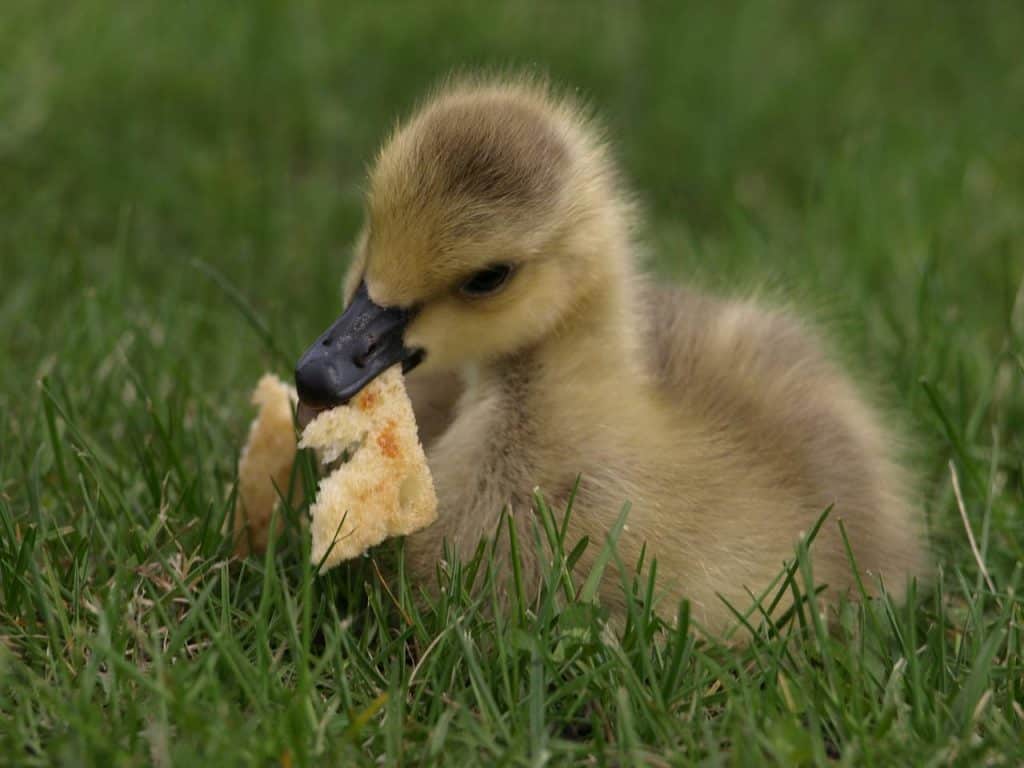
The significant difference between feeding wild birds and ducks is that ducks and geese tend to congregate around water. Leftover bread exposed to water will not only become stale, but within a short amount of time, it becomes covered in mold.
As discussed earlier, moldy bread increases the chance of infection spread among wildlife.
The Best Food for Birds
If you must feed the wild birds in your backyard or local pond, bird food is your best choice.
Rather than risking infecting the local bird population and other wildlife, you can rest assured that you’re feeding birds something developed specifically for them.
Although bird food is the best choice, there are other things you can feed your avian pals. These foods are better choices because they have some caloric and nutritional value compared to bread.
Fats
Fats are great for birds because they support high activity levels. If you plan to feed fats to birds, you should mix it with protein, such as mealworms, canned pet food, or legumes, for additional health benefits.
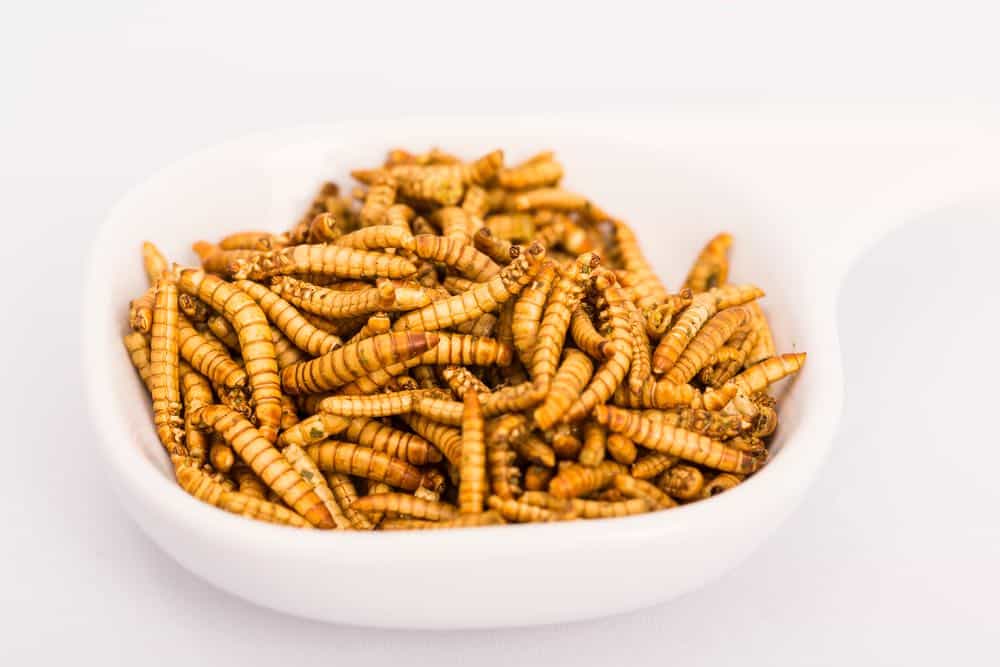
Avoid polyunsaturated fats as they don’t provide the same level of fuel for energy birds need during the winter.
Fruits
Fruits, particularly dried fruits like raisins, make an excellent snack for birds. You can even use bruised or partially rotten fruit, with the rotten parts cut away.
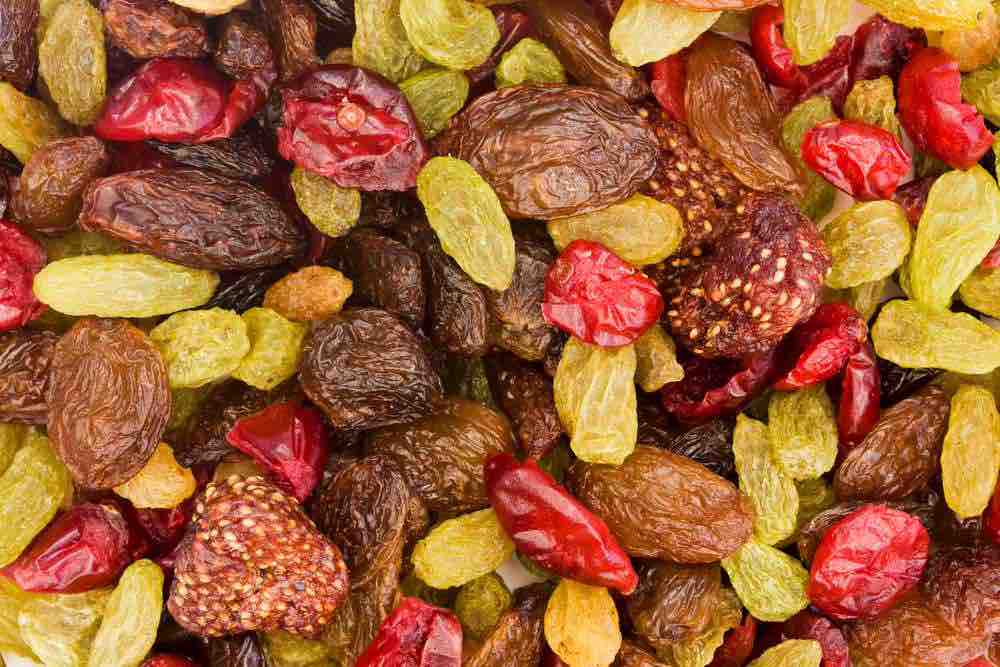
If you choose to feed wild birds fruit, it’s better to serve up small pieces of a variety of fruits rather than one large slice.
The only fruit to avoid is avocado, which contains toxic parts for birds.
If you have any cats or dogs or plan to feed birds in an area with other wildlife, you will want to check which fruits are suitable and safe for other animals to ingest.
Final Thoughts
While bread shouldn’t be your first choice to feed birds, there are things you can do to make it healthier. Some things you can do to make bread healthier for birds include using healthier, organic slices of bread and adding healthy toppings, like almond butter, to it.
However, despite being able to make bread healthier, it still isn’t the best choice for birds due to the potential impact it has on the environment. Ideally, it’s best to opt for bird food that is specially formulated and has minimal risks.
Happy Birding!
